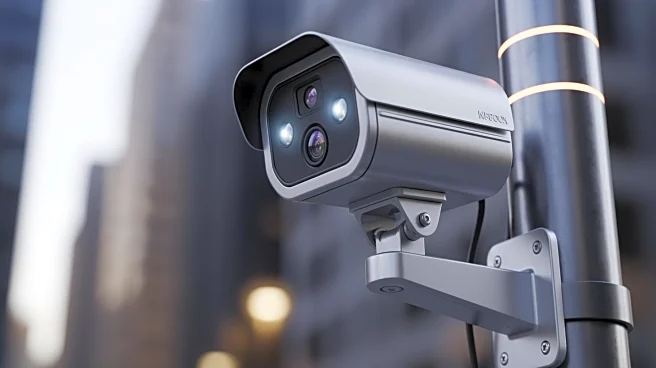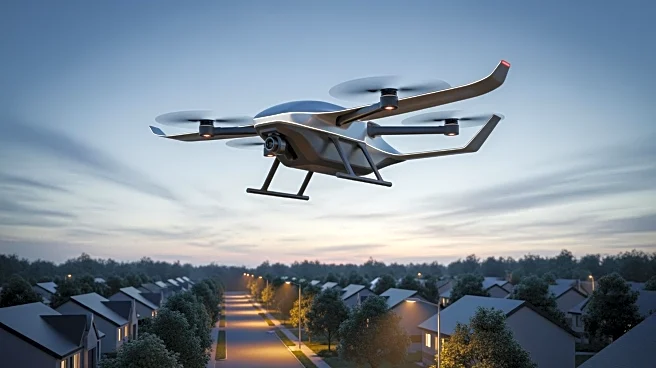What's Happening?
Immigration and Customs Enforcement (ICE) has introduced new surveillance technologies, including a mobile facial recognition app known as Mobile Fortify, to identify and track individuals in the field.
This app allows agents to use cell phones to capture facial images and match them against Customs and Border Protection databases, providing information such as name, birth date, and citizenship status. The initiative is part of a broader effort by the Trump administration to increase deportations, aiming for a million removals annually. However, the use of such technology has raised significant privacy concerns among Democratic lawmakers and civil liberties advocates, who argue that it could lead to mass surveillance and erosion of constitutional rights.
Why It's Important?
The deployment of facial recognition technology by ICE represents a significant shift in immigration enforcement tactics, potentially impacting millions of individuals, including U.S. citizens. Privacy advocates warn that the technology could be used to surveil public spaces, chilling free speech and undermining democratic principles. The lack of regulatory oversight and transparency in the use of these tools raises concerns about potential misuse and the targeting of minority communities. As the government expands its surveillance capabilities, the balance between national security and individual privacy rights becomes increasingly contentious, prompting calls for legislative action to protect civil liberties.
What's Next?
Democratic senators, led by Sen. Edward Markey, have demanded ICE halt the use of facial recognition technology and provide answers regarding its legal basis and application. The public has until early January to comment on a proposed rule that would expand DHS's ability to collect biometric data from noncitizens and their relatives. As debates over privacy and surveillance continue, further scrutiny and potential legal challenges are expected, with lawmakers and advocacy groups pushing for greater accountability and regulation of government surveillance practices.
Beyond the Headlines
The introduction of advanced surveillance technologies by ICE could have long-term implications for privacy rights and government accountability. The potential for these tools to be used beyond immigration enforcement, such as in public protests or against political dissenters, raises ethical and legal questions. The expansion of surveillance capabilities may also influence cultural perceptions of privacy and security, prompting broader societal debates about the role of technology in governance and civil liberties.









